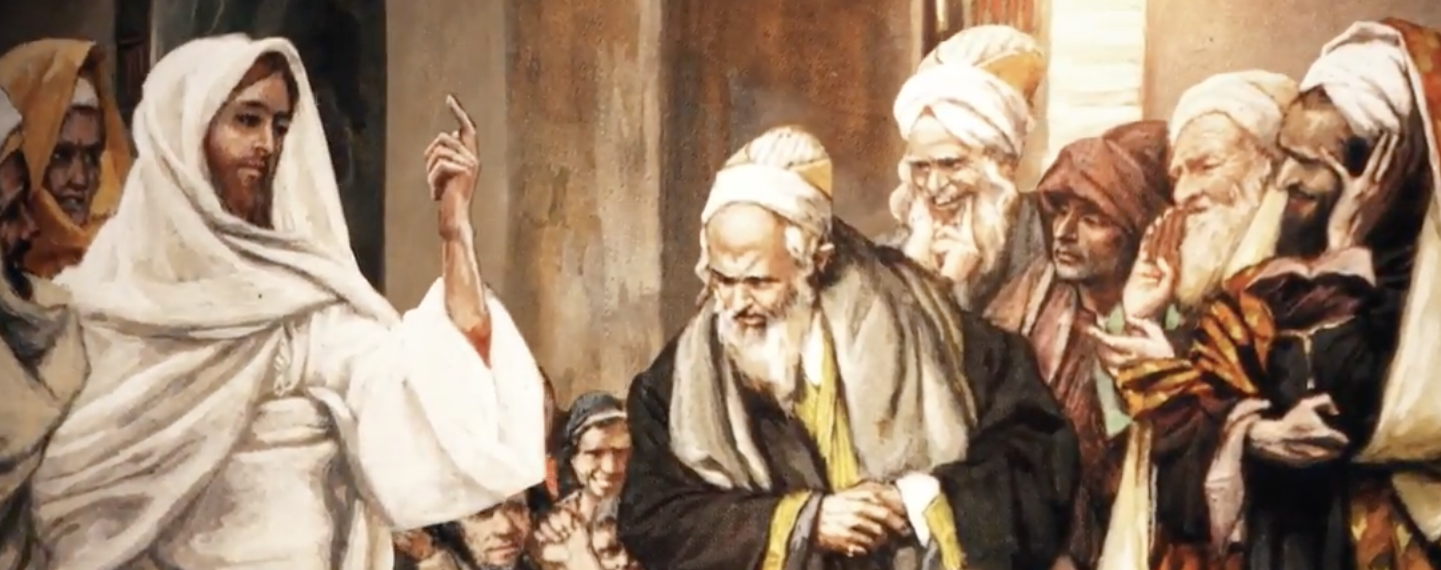
“Which of the two did the will of his
father?” (Matthew 21:31)
I really don’t know if I’ve grown wiser
with age, but I do think I’ve learned a few
things in my time on this planet. Want to know one of my cardinal rules?
Here it is:
Never argue with crazy people.
That’s right. Don’t waste your breath,
because you can’t make a rational argument to an irrational mind. You can’t
reason with the unreasonable. And the problem with this rule is that all of us
are unreasonable, irrational, and just a little crazy at times.
The debate in which Jesus finds himself
engaged in the gospel lesson appointed for Pentecost 17 Year A (Matthew 21:23-32)
is right out of the nut house. Why? Because the chief priests and elders who
challenge Jesus’ authority ask a question with no intention of hearing his answer. When they ask, “By what
authority are you doing these things, and who gave you this authority?” they
are not really requesting information. If they were, Jesus would have no
trouble giving them a reply.
The story comes right after Jesus has
entered the Temple in Jerusalem, driven out the money-changers, and begun a
healing ministry. He could reply that his authority came from the Law of Moses
which forbade the kind of corruption which cheated poor people, or he could claim
the authority of scripture for cleansing the Temple (which he cited in v.13),
by quoting Jeremiah 7:11 or Isaiah 56:7. Of course, if he did that, it’s more
than likely that the high muckety-mucks would claim that they knew scripture better than he did by virtue of their office.
If Jesus claimed he did what he did and said what he said by God’s authority,
the priests and elders would accuse him of blasphemy. There wouldn’t be any
arguing with these guys because their minds were already made up.
So what does Jesus do? He refuses to play
their game. He asks them a question which exposes the hypocrisy of their
self-serving inquiry, and then he challenges their imagination with a parable.
Who does the Father’s will: the guy who has the right answer, or the guy who
proves his devotion and obedience by his actions? The elders and priests have
to reply that the words said are not as important as the deeds done. We will
all be known by our works.
And this is tough, because we all get a
little crazy at times and want to be seen as having the right answers. I think
our craziness comes out of fear. It’s fear that demands we prove ourselves
right when—deep down—we suspect we might be wrong. It’s fear that we aren’t in
control, that we can’t dominate a situation—forgetting that this is God’s world
and we’ve never controlled it anyway. It’s a fear that, if we give up our
time-honored opinions and prejudices and admit to other possibilities we’ll
somehow lose a part of ourselves. It’s fear that we just won’t be special or
superior if our answer and our way can’t crush all opposition.
The chief priests and elders in the story
can’t be reasoned with. But the tax collectors and the prostitutes can. The
latter can admit to their sin and change their hearts and be led to do the work
of God in reconciliation and love. That’s why they go into the Kingdom ahead of
the others. But please note: Jesus doesn’t say that the elders don’t get to go into the Kingdom. It’s
just their crazy stubbornness that keep them from enjoying the peace of
surrender to God’s grace and mercy which repentant sinners can feel right here
and now.
There are always going to be those who
need to win. They need to feel superior. They’ll judge the contemporary “tax
collectors and prostitutes.” Maybe they condemn Muslims or illegal immigrants
or the LGBT community or women who’ve had abortions. And some of the rest of us
will vilify them as “elders and chief priests.” We’ll condemn the racists,
white supremacists, annoying family members, and loud-mouthed intolerant idiots
we run into at work or at our gym or wherever. But by what authority do any of
us get to judge others?
We can’t argue with crazy people. But we
can chose to love them in spite of their—and our own—hypocrisy. We don’t need
to be always saying the right thing or having the right answer. We need to be
doing the work of the Father which starts with love. We always have Jesus’
authority for that.
God bless, my friends. Thank you for
reading.


